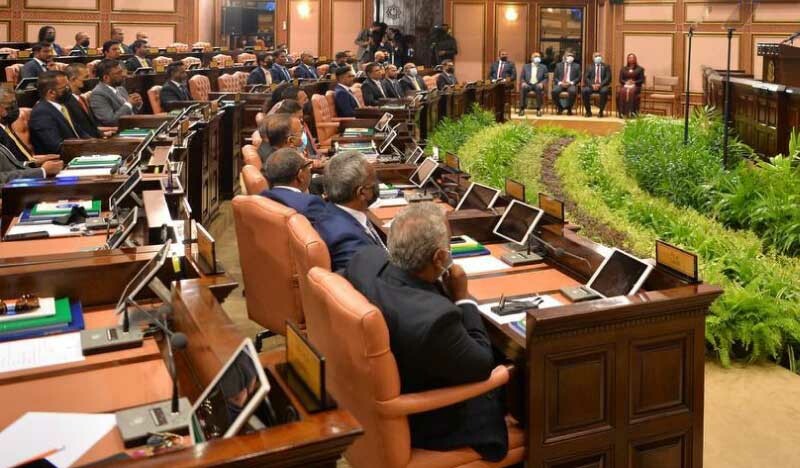Public Calls to Abolish State Allowance for Former MPs

Photo: People’s Majilis
Recent discussions on social media have brought attention to the issue of the state allowance provided to former Members of Parliament (MPs), prompting calls for its abolition. The debate stems from provisions outlined in the Parliamentary Privileges and Powers Act, which stipulates financial allowances for MPs based on their length of service.
As per the Act:
- MPs who have served one term are entitled to a financial allowance of 30% of their current salary.
- Those who have served two terms are eligible for 45% of the salary.
- This allowance is granted once the MP leaves office and reaches the age of eligibility; the allowance is suspended during any period of public service.
Recipients of this allowance are not entitled to additional state pensions or financial benefits but receive medical coverage under a health insurance scheme similar to current MPs.
With the recent conclusion of the 20th Parliamentary elections, which saw a significant turnover with many new members elected, attention has been refocused on the financial implications of providing allowances to former MPs.
Out of the 87 members from the previous Parliament, only 11 secured re-election, leaving 76 eligible for the allowance. This includes MPs who served one, two, or three terms, with potential payouts of MVR 18,000 for one term and upwards of MVR 27,000 for multiple terms, as per legal provisions.
Critics argue that the allowance places undue strain on state finances, particularly as the number of former MPs rises exponentially with each election cycle. Concerns have been raised about the widening gap between MPs’ allowances and the income of the general public, with suggestions that it incentivizes unscrupulous means of gaining parliamentary seats.
Social media users are voicing their opposition to the allowance. Some argue that former MPs should not receive benefits indefinitely, especially when compared to the financial struggles faced by ordinary citizens. Others advocate for a cap on the allowance, aligning it with the compensation received by professions such as teachers and doctors.
Despite public outcry, political parties or MPs have not officially advocated abolishing the allowance. However, discontent among the public is palpable, with pledges to campaign against continuing to pay state allowances. The debate highlights broader questions about the allocation of state resources and the accountability of elected officials to the electorate.







